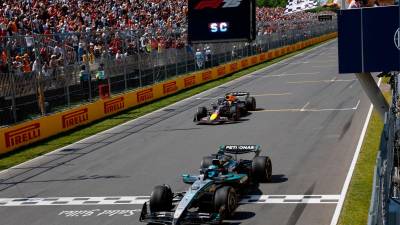PETALING JAYA: Reviving Formula 1 in Malaysia could inject fresh economic momentum, boost global recognition and restore national pride but only if the high-cost venture is tied to broader national strategies, experts say.
Universiti Teknologi Mara senior economics lecturer Dr Mohamad Idham Md Razak argued that Malaysia could reap significant benefits by rejoining the circuit, provided it was managed with fiscal discipline and clear policy goals.
“Re-entry into F1 could act as a circuit-breaker for economic malaise and help restore national pride at a time when Malaysia needs both.
“While it might seem counterintuitive to invest in F1 amid economic strain, there’s potential for the move to open doors for future investment, job creation and international exposure.”
Idham acknowledged the financial risks but said they could be offset through public-private partnerships.
“The government’s role would be to weigh short-term pain against long-term gain. If delivered with fiscal discipline, F1 could even create additional fiscal space by generating tourism, foreign investment and business activity.”
He, however, cautioned that Malaysia’s return to the sport must go beyond symbolism or nostalgia.
“If integrated with industrial policy – such as positioning Malaysia in the global motorsports supply chain or attracting investment in green mobility technology – it could have longer-term benefits.”
On social impact, Idham said F1 had the potential to create jobs, training opportunities for youth and business prospects for SMEs.
“The government could set conditions on the use of land and facilities to ensure local communities benefit from the event. In that way, F1 could be a tool for inclusion and empowerment, not just an elite spectacle.”
Regarding costly infrastructure upgrades, he noted that improvements to SIC should be seen as investments in Malaysia’s capacity to host world-class events.
“Provided they are used and managed responsibly, these upgrades could benefit the wider population by improving the country’s transport network and facilities.”
Motoring journalist and automotive expert Keshy Dhillon also welcomed the prospect of F1’s return, saying it could revive Malaysia’s profile internationally.
“Realistically, Malaysia doesn’t need F1 to maintain its motorsport reputation. But F1 has a huge following and can put Malaysia back on the world stage while drawing attention to Sepang Circuit.”
On SIC’s readiness, Dhillon pointed out that the track was upgraded several years ago, mainly for MotoGP and is broadly fit to host F1.
“Some additional work, such as improving drainage and installing proper lighting for a night race, would be needed.
“However, these upgrades could allow SIC to host other events, helping to recover costs. While expensive, the improvements could put Malaysia back on the global motorsport map and generate tourism and business benefits.”
